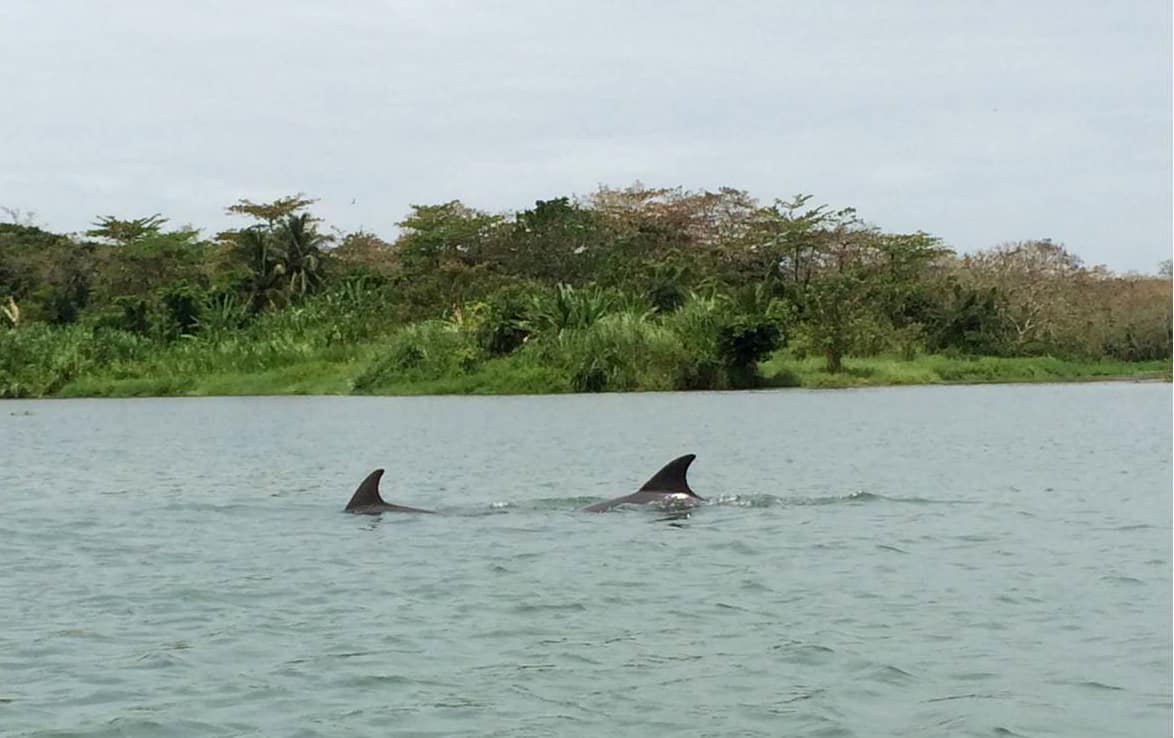Sediment blocking the Pacuare River’s mouth has left a group of dolphins stranded for nearly a month. The bottlenose dolphins – two adults and a calf – have been living 12 kilometers upriver in Lake Madre de Dios near Costa Rica’s Atlantic Coast.
According to Gabriela Hernández, a veterinarian for ocean conservation group Fundación Keto and who has been monitoring the situation, dolphins have been known to occasionally enter the canals in search of food. The building of sediment combined with the low tide and lack of rain left the river mouth to the ocean too shallow for the dolphins to pass.
“The behavior is perfectly normal,” Hernández said. “They were probably in the canal for a couple of days, giving the river mouth enough time to close up.”
So far, the dolphins seem to be feeding and behaving normally. The large lake has been able to provide enough food for them, and the lake’s proximity to the ocean gives the water a high enough level of salinity for the animals’ skin. Officials from the Environment Ministry (MINAE) and Fundación Keto have made regular visits to the dolphins and have enlisted the help of people living in the area to take daily photos to monitor their conditions.
Soon after the area’s residents reported spotting the dolphins, MINAE and the coast guard attempted to relocate them. Using boats and nets, officials tried to corner the dolphins in one area to net them, but failed. Currently, there are no plans for a repeat relocation mission.
For now, the biggest risk to the dolphins’ safety is the lake’s human visitors.
“We worry if too many people try to go see them that they could hit them with a boat or hurt them,” Hernández said. “People need to give at least 100 meters of space to the dolphins if they visit.”
As long as the food holds out and people do not hurt them, Hernández and MINAE officials believe the dolphins should be able to survive indefinitely in the lake until the river mouth reopens.






